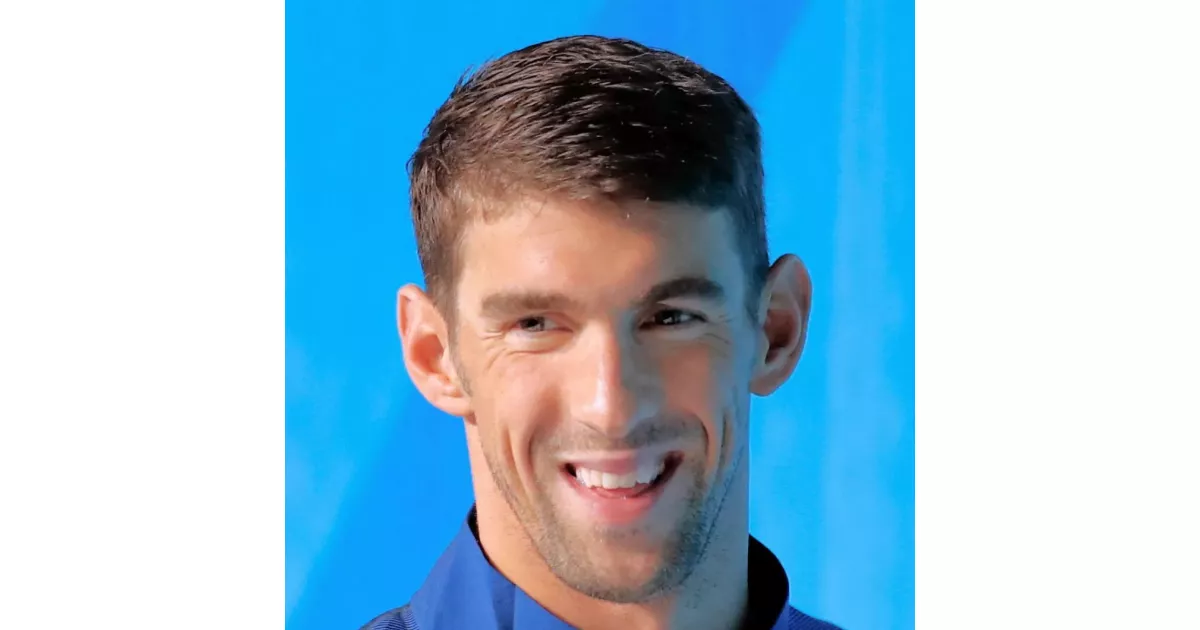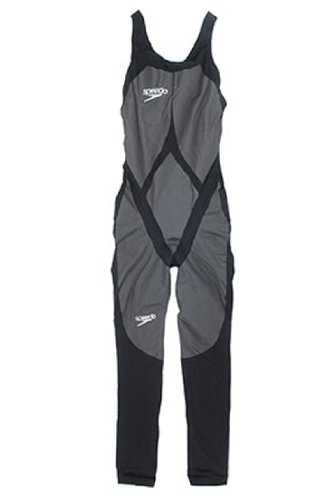Michael Phelps is the most decorated Olympian of all time, holding a record of 28 medals. He holds all-time records for Olympic gold medals (23), Olympic gold medals in individual events (13), and Olympic medals in individual events (16). At the 2004 Athens Olympics, he won six gold and two bronze medals. He broke Mark Spitz's record by winning eight gold medals at the 2008 Beijing Games. In 2012 London Olympics, Phelps won four gold and two silver medals and continued his success in the 2016 Rio de Janeiro Olympics with five gold medals and one silver, marking his fourth consecutive Olympics as the most successful athlete.
1920: Duke Kahanamoku's Olympic Record
In 1920, Duke Kahanamoku set a record as the oldest male champion in Olympic swimming, a record that Michael Phelps would later break.
1932: Ralph Flanagan's Olympic Appearance
In 1932, Ralph Flanagan was the youngest male to make a U.S. Olympic swim team, before Michael Phelps in 2000.
1972: Mark Spitz's Performance at 1972 Summer Olympics
At the 1972 Summer Olympics, Mark Spitz set the record for the best performance at a single Olympics, winning seven gold medals.
1972: Mark Spitz's Record
In 1972, Mark Spitz set a record by achieving seven first-place finishes at a single Olympic Games.
1980: Eric Heiden's Olympic Record
In the 1980 Winter Olympics, Eric Heiden set a record for individual gold medals at a single Games.
1983: Bob Bowman Swam for Florida State University
Bob Bowman, Michael Phelps' coach, swam for Florida State University from 1983 to 1985.
June 30, 1985: Michael Phelps' Birth
On June 30, 1985, Michael Fred Phelps II was born. He would grow to become the most decorated Olympian of all time.
1985: Bob Bowman Swam for Florida State University
Bob Bowman, Michael Phelps' coach, swam for Florida State University from 1983 to 1985.
1992: Vitaly Scherbo's Olympic Record
In the 1992 Summer Games, Vitaly Scherbo equaled the record for individual gold medals at a single Games.
1994: Parents' Divorce
In 1994, when Michael Phelps was nine years old, his parents divorced, which had a severe negative impact on him and his siblings.
2000: USA Olympic Team Member
In 2000, Michael Phelps became a member of the USA Olympic team.
2000: Finished 5th in 200m Butterfly
In 2000, Michael Phelps finished 5th in the 200-meter butterfly, marking his first appearance in the finals of that event at the Olympics.
2000: Father's Remarriage
In 2000, Michael Phelps' father remarried.
2000: 2000 Summer Olympics
In 2000, at the age of 15, Michael Phelps qualified for the Summer Olympics, becoming the youngest male to make a U.S. Olympic swim team in 68 years, finishing fifth in the 200-meter butterfly.
2000: Failure to medal
Since 2000, the 2012 Olympics was the first time Michael Phelps failed to medal in an Olympic event, marking a significant moment in his career.
2001: Ian Thorpe's record
In 2001, Ian Thorpe set a record of six gold medals at the World Championships.
2001: Previous World Record
In 2001, Phelps previously held the world record for the 200-meter butterfly with a time of 1:54.58.
2001: World Record in 200-meter Butterfly
On March 30, 2001, at the World Championship Trials, Michael Phelps broke the world record in the 200-meter butterfly, becoming the youngest male ever to set a world record in swimming at 15 years and 9 months. At the World Championships in Fukuoka, Japan, Phelps broke his own world record in the 200-meter butterfly while en route to become a world champion for the first time.
2002: 2002 Pan Pacific Swimming Championships
At the 2002 Pan Pacific Swimming Championships in Yokohama, Japan, Michael Phelps won three gold medals and two silver medals. Phelps won gold in the 400-meter individual medley, the 200-meter individual medley, and silver in the 200-meter butterfly and the 4x200-meter freestyle relay. He also helped the U.S. 4x100-meter medley relay team to a world record.
2002: Nationals and World Record
In 2002 at Nationals, Michael Phelps set an American record in the 200-meter individual medley and came close to the world record in the 200-meter butterfly. He also bettered the world record in the 400-meter individual medley with a time of 4:11.09 at the selection meet for the Pan Pacific Swimming Championships.
2002: Winning streak in 200-meter butterfly
Since 2002, Michael Phelps had not lost a 200-meter butterfly final, highlighting his dominance in the event.
2003: 2003 World Aquatics Championships
At the 2003 World Aquatics Championships, Michael Phelps won four gold medals and two silver medals and broke five world records. On July 22, 2003, he broke the world record in the semi-finals for the 200-meter butterfly with a time of 1:53.93.
2003: High School Graduation
In 2003, Michael Phelps graduated from Towson High School.
2003: 200-meter individual medley world record
In 2003, Michael Phelps set a world record time of 1:55.94 in 200-meter individual medley.
2003: 2003 Nationals and Duel in the Pool
In 2003, at Nationals, Michael Phelps won the 200-meter freestyle, 200-meter backstroke, and the 100-meter butterfly, becoming the first American swimmer to win three different races in three different strokes at a national championship. At the Duel in the Pool, he broke the world record in the 400-meter individual medley with a time of 4:10.73. At a meet in Santa Clara County, California, Phelps broke the world record in the 200-meter individual medley with a time of 1:57.94.
November 2004: Arrested for DUI
In November 2004, Michael Phelps was arrested for driving under the influence of alcohol in Salisbury, Maryland. He pleaded guilty to driving while impaired and received a sentence including probation, a fine, and mandatory speaking engagements.
2004: Athens Olympics
After the 2004 Athens Olympics, Michael Phelps would later become the first swimmer, male or female, to win three Olympic butterfly titles.
2004: Bowman Hired by University of Michigan
After the 2004 Summer Olympics, Bob Bowman was hired as the head coach for the University of Michigan, and Michael Phelps joined him there to train.
2004: 2004 Summer Olympics in Athens
At the 2004 Summer Olympics in Athens, Michael Phelps tied the record of eight medals of any color at a single Games, winning six gold and two bronze medals.
2004: 2004 U.S. Olympic Team Trials
At the 2004 U.S. Olympic Team Trials, Michael Phelps competed in six events and qualified in six individual events for the U.S. Olympic team. He won the 400-meter individual medley with a world record time of 4:08.41, the 200-meter freestyle, and the 200-meter butterfly. He finished second in the 200-meter backstroke and the 100-meter butterfly. He won the 200-meter individual medley title.
2004: Close Victories in the 100m Butterfly
In 2004, Michael Phelps secured one of his close victories in the 100m butterfly at the Olympics, winning by 0.04 seconds.
2004: USA Olympic Team Member
In 2004, Michael Phelps was a member of the USA Olympic team.
2004: Won gold medal in 200m Butterfly
In 2004, Michael Phelps won his first gold medal in the 200-meter butterfly at the Olympics.
2004: Previous World Record
Prior to August 17, 2008, the United States held the world record from the 2004 Olympic Games in Athens.
2005: 2005 World Championship Trials
At the 2005 World Championship Trials, Michael Phelps decided to drop his specialty events, the 400-meter individual medley and the 200-meter butterfly, and experiment with the 400-meter freestyle and the 100-meter freestyle. Phelps won the 400-meter freestyle, the 200-meter freestyle, the 100-meter butterfly, the 100-meter freestyle, and the 200-meter individual medley at the Trials.
2005: Ian Crocker's record
In 2005, Ian Crocker set a world-record time of 50.40 seconds.
2005: 2005 World Aquatics Championships
In 2005, at the World Aquatics Championships, Michael Phelps won a total of six medals, including five golds and one silver. He won his first gold in the 4x100-meter freestyle relay. He also finished 18th overall in the 400-meter freestyle.
2006: Pan Pacific Championships Backstroke competition
In 2006, Michael Phelps competed in the backstroke at the Pan Pacific Championships.
2006: 2006 National Championships
In 2006, at the National Championships, Michael Phelps won three events: the 200-meter butterfly, the 100-meter butterfly, and the 200-meter individual medley.
2006: 2006 Pan Pacific Swimming Championships
In 2006, at the Pan Pacific Swimming Championships in Victoria, British Columbia, Michael Phelps won five gold medals and one silver. He set a world record in the 200-meter butterfly. He also won gold in the 400-meter individual medley, the 4x200-meter freestyle relay, the 4x100-meter freestyle relay and the 200-meter individual medley. He won silver in the 200-meter backstroke.
August 1, 2007: US Nationals in Indianapolis
On August 1, 2007, at the US Nationals in Indianapolis, Michael Phelps swam a 1:54.65 in the 200-meter backstroke, which was the third-fastest time ever in the event.
2007: Meeting Nicole Johnson
In 2007, Michael Phelps met Nicole Johnson at the ESPYs.
2007: 100-meter butterfly title
In 2007, Michael Phelps won the 100-meter butterfly title at the World Aquatics Championships, contributing to his winning streak.
2007: 2007 World Aquatics Championships
In 2007, at the World Aquatics Championships, Michael Phelps won seven gold medals, tying Mark Spitz's record, and broke five world records. He won gold in the 4x100-meter freestyle, 200-meter freestyle, 200-meter butterfly, 200-meter individual medley, 4x200-meter freestyle relay, 100-meter butterfly, and 400-meter individual medley.
August 17, 2008: Eighth Gold Medal at the 2008 Olympics
On August 17, 2008, Michael Phelps won his eighth gold medal in the 4x100-meter medley relay, breaking Mark Spitz's record from 1972. The team set a new world record.
2008: Bowman Returns to Baltimore
After the 2008 Summer Olympics, Bob Bowman returned to Baltimore as CEO at the North Baltimore Aquatic Club, and Michael Phelps returned with him.
2008: Michael Phelps Foundation Started
After the 2008 Summer Olympics, Michael Phelps started the Michael Phelps Foundation, which focuses on growing the sport of swimming and promoting healthier lifestyles.
2008: 2008 Beijing Games
At the 2008 Beijing Games, Michael Phelps won eight gold medals, breaking Mark Spitz's 1972 record of seven first-place finishes at a single Olympic Games.
2008: Sports Illustrated's Sportsman of the Year
Due to his unprecedented Olympic success in the 2008 Games, Michael Phelps earned Sports Illustrated magazine's Sportsman of the Year award.
2008: Phelps and Project Believe
During the 2008 Olympics, Michael Phelps addressed press questions regarding performance-enhancing substances and confirmed his participation in Project Believe.
2008: Eighth Olympic Gold Medal
During the 2008 Summer Olympics in Beijing, Ian Thorpe initially expressed doubt that Michael Phelps would win eight gold medals. Phelps used those remarks as motivation. Thorpe was present for the 4×100-meter medley relay, where Phelps secured his eighth Olympic gold medal, after which Thorpe congratulated Phelps.
2008: First Breakup with Nicole Johnson
In 2008, Michael Phelps and Nicole Johnson broke up for the first time.
2008: Close Victories in the 100m Butterfly
In 2008, Michael Phelps secured another close victory in the 100m butterfly at the Olympics, winning by 0.01 seconds.
2008: 4x100-meter freestyle relay victory at the 2008 Olympics
In 2008, Michael Phelps swam the first leg of the 4x100-meter freestyle relay and won his second gold medal of the Olympics. The team also set a world record.
2008: USA Olympic Team Member
In 2008, Michael Phelps was a member of the USA Olympic team.
2008: Defending Individual Title
In 2008, Michael Phelps won an individual title and he was one of the swimmers who successfully defended that title from the 2008 Games at the 2012 Olympics.
2008: Won gold medal in 200m Butterfly
In 2008, Michael Phelps won another gold medal in the 200-meter butterfly at the Olympics, continuing his dominance in the event.
2008: Established the Michael Phelps Foundation
In 2008, after the Olympics, Michael Phelps used his $1 million Speedo bonus to set up the Michael Phelps Foundation, which focuses on growing the sport of swimming and promoting healthier lifestyles.
2008: 2008 U.S. Olympic Team Trials
In 2008, at the U.S. Olympic Team Trials, Michael Phelps competed in six individual events. He broke his own world record in the 400-meter individual medley. He also won the 200-meter freestyle, 200-meter butterfly, 200-meter individual medley, and 100-meter butterfly.
February 2009: Photograph Using a Bong Surfaces
In February 2009, a photograph of Michael Phelps using a bong went viral, resulting in the loss of Kellogg's as a sponsor and a three-month suspension by USA Swimming. Phelps admitted the photo was authentic and apologized.
April 9, 2009: Honored by Maryland Legislature
On April 9, 2009, Michael Phelps was invited to appear before the Maryland House of Delegates and the Maryland Senate to be honored for his Olympic accomplishments.
2009: 100-meter butterfly title
In 2009, Michael Phelps won his third consecutive title in the 100-meter butterfly at the World Aquatics Championships.
2009: 2009 National Championships
In 2009, at the National Championships, Michael Phelps swam in three individual events: the 200-meter freestyle, the 200-meter butterfly, and the 100-meter butterfly. He won all three, setting a world record in the 100-meter butterfly.
2009: 2009 World Aquatics Championships
In 2009, at the World Aquatics Championships, Michael Phelps won 6 medals. He led off the 4x100-meter freestyle relay, securing gold for the American team. In the 200-meter freestyle, he lost to Paul Biedermann and took silver, but then rebounded to win gold in the 200-meter butterfly, breaking his own world record. He also led off the 4x200-meter freestyle relay, contributing to another gold and world record. In the 100-meter butterfly, Phelps won gold, completing it in under 50 seconds, and concluded with a fifth gold in the 4x100-meter medley relay, setting another world record.
2009: Rome Title
Since the Rome 2009 titles, the national team had not won the men's 4 × 100 m freestyle relay until Phelps' return.
2010: Second Breakup with Nicole Johnson
In 2010, Michael Phelps and Nicole Johnson broke up for the second time.
2010: 2010 National Championships
In 2010, at the National Championships, Michael Phelps competed in five individual events. He won the 200-meter freestyle and the 200-meter butterfly, though he was unhappy with the latter performance. Phelps also won his 50th national title in the 100-meter butterfly. He finished second to Ryan Lochte in the 200-meter individual medley and finished fourth in the 200-meter backstroke.
2010: 2010 Pan Pacific Swimming Championships
In 2010, at the Pan Pacific Swimming Championships, Phelps opted out of the 200-meter freestyle final to focus on the 200-meter butterfly, which he won. He also swam in the 4x200-meter freestyle relay, finishing first. Phelps competed in the 100-meter butterfly, finishing first and setting a championship record. He also participated in the 4x100-meter freestyle relay and the 4x100-meter medley relay, securing first place in both.
2010: Launched "im" Program
In 2010, the Michael Phelps Foundation, the Michael Phelps Swim School, and KidsHealth.org developed and nationally piloted the "im" program for Boys & Girls Club members. The im program teaches children the importance of being active and healthy, with a focus on the sport of swimming. It also promotes the value of planning and goal-setting.
2011: 2011 World Aquatics Championships
In 2011, at the World Aquatics Championships in Shanghai, Michael Phelps won bronze in the 4x100-meter freestyle relay. He also won silver in the 200-meter freestyle and secured his first gold medal in the 200-meter butterfly, making him the first swimmer to win five gold medals in one discipline at the World Aquatics Championships.
2011: Release of Michael Phelps: Push the Limit game
In 2011, the Xbox 360/Kinect game Michael Phelps: Push the Limit was released. The game promised to bring the fun, fitness, and excitement of head-to-head swimming to your living room.
July 28, 2012: 400-meter Individual Medley at the 2012 Summer Olympics
On July 28, 2012, at the London Summer Olympics, Michael Phelps placed eighth in the prelims for the 400-meter individual medley. He won his heat but with a time well off his world record. In the finals, Phelps finished fourth, marking the first time he failed to medal in an Olympic event since 2000.
July 31, 2012: Silver and Gold Medals at the 2012 Summer Olympics
On July 31, 2012, Michael Phelps won a silver medal in the 200-meter butterfly at the Summer Olympics, finishing behind Chad le Clos. Later that day, he won a gold medal in the 4x200-meter freestyle relay, surpassing Larisa Latynina to become the all-time record holder for most Olympic medals won.
August 2, 2012: 16th Olympic Gold Medal and Three-peat Victory
On August 2, 2012, Michael Phelps won his 16th Olympic gold medal by winning the 200-meter individual medley at the Summer Olympics, edging out Ryan Lochte. This victory also made him the first male swimmer to win the same event in three consecutive Olympics.
2012: 2012 Summer Olympics in London
At the 2012 Summer Olympics in London, Michael Phelps won four gold and two silver medals.
2012: Deterioration of Relationship
Before the London 2012 Olympics, the relationship between Phelps and coach Bob Bowman had deteriorated.
2012: Planned to Focus on Foundation
Following the 2012 Summer Olympics in London, Michael Phelps stated he hoped to work more with his Foundation after retirement from competition. The Foundation's largest event is its annual fundraiser, the Michael Phelps Foundation Golf Classic.
2012: Retirement from Swimming
Following the 2012 Summer Olympics, Michael Phelps announced his retirement from swimming, expressing a desire to be done with the sport entirely.
2012: Reconciliation with Nicole Johnson
In 2012, Michael Phelps and Nicole Johnson started to reconcile their relationship.
2012: Contemplated suicide after 2012 Olympics
In 2012, Michael Phelps contemplated suicide after the Olympics.
2012: Finished 2nd in 200m Butterfly
In 2012, Michael Phelps finished 2nd in the 200-meter butterfly at the Olympics, losing to Chad le Clos.
2012: FINA Swimmer of the Year Award
In 2012, Michael Phelps received the FINA Swimmer of the Year Award.
2012: USA Olympic Team Member
In 2012, Michael Phelps was a member of the USA Olympic team.
2012: World Record for Longest Televised Putt
In 2012, at the Alfred Dunhill Links Championship, Michael Phelps set the world record for the longest televised putt in history, sinking a putt from 159 feet away while paired with golfer Paul Casey.
2012: Final Olympic Event and Recognition
In 2012, at the Summer Olympics, Michael Phelps's final event was the 4x100-meter medley relay, where he won his 18th career gold medal and his 22nd overall. He concluded the 2012 Olympics as the most successful swimmer for the third consecutive Olympics. FINA honored him with an award commemorating his status as the most decorated Olympian ever.
2012: First Retirement
Michael Phelps retired following the 2012 Olympics.
April 2014: Announcement of Return from Retirement
In April 2014, Michael Phelps announced his decision to come out of retirement and return to competitive swimming.
April 2014: Comeback
In April 2014, Michael Phelps made a comeback to competitive swimming.
May 2014: Victory at Arena Grand Prix
In May 2014, Michael Phelps won the 100-meter butterfly event at the Arena Grand Prix in Charlotte, North Carolina, marking his return to competitive success.
September 2014: Arrested for DUI and Speeding
In September 2014, Michael Phelps was arrested again for driving under the influence of alcohol and speeding in Baltimore, leading to a six-month suspension from all competitions by USA Swimming.
2014: Deterioration of Relationship with Le Clos
In 2014, Michael Phelps came back from retirement and suggested that current butterfly times were slow, which deteriorated his cordial relationship with Chad le Clos.
February 2015: Engagement to Nicole Johnson
In February 2015, Michael Phelps got engaged to Nicole Johnson.
December 2015: Winter Nationals Titles
In December 2015, Michael Phelps won titles in the 100-meter butterfly, 200-meter butterfly, and the 200-meter individual medley at the Winter Nationals in Federal Way, bringing his career total to 62 national titles.
2015: Bowman Hired by Arizona State University
In 2015, Bob Bowman was hired as the men's and women's swimming coach at Arizona State University, and Michael Phelps moved to Arizona to continue training under him.
2015: US National Championships Success
In 2015, after being dropped from the World Aquatics Championships team, Michael Phelps competed in the US National Championships in San Antonio. He won gold medals in the 100-meter butterfly, 200-meter butterfly, and 200-meter individual medley, achieving the fastest times in the world for that year in each event.
2015: Suspension from World Aquatics Championships
In 2015, due to his suspension, Michael Phelps was not chosen to represent the United States at the World Aquatics Championships in August. The United States subsequently failed to qualify for the finals of the 4 × 100 m freestyle relay.
June 13, 2016: Secret Marriage to Nicole Johnson
On June 13, 2016, Michael Phelps secretly married former Miss California USA, Nicole Johnson.
August 12, 2016: Second Retirement
On August 12, 2016, Michael Phelps announced his second retirement, having won more medals than 161 countries.
2016: Phelps Reflects on Starting Swimming
After retiring in 2016, Michael Phelps stated that he initially got into swimming because his mom wanted him to learn how to swim.
2016: 2016 Summer Olympics in Rio de Janeiro
At the 2016 Summer Olympics in Rio de Janeiro, Michael Phelps won five gold medals and one silver, making him the most successful athlete of the Games for the fourth Olympics in a row.
2016: Physical Strength
By the 2016 Olympic Trials, Michael Phelps felt physically stronger in the water, due to Bowman's training additions.
2016: FINA Swimmer of the Year Award
In 2016, Michael Phelps earned the FINA Swimmer of the Year Award.
2016: Sought Ray Lewis's advice
In 2016, Michael Phelps sought Ray Lewis's advice, which helped him find his life purpose and desire to compete in the 2016 Summer Olympics.
2016: USA Olympic Team Member
In 2016, Michael Phelps was a member of the USA Olympic team.
2016: Qualified for fifth Olympics
In 2016, at the US trials in Omaha for the Summer Olympics, Michael Phelps won the 200 m butterfly, the 200 m individual medley, and the 100 m butterfly events, making him the first American male swimmer to qualify for a fifth Olympics. He also secured a spot on the Men's 4 × 100 metre freestyle relay.
2016: Won 19th Olympic Gold Medal
On August 7, 2016, Michael Phelps won his first gold medal of the 2016 Games and his 19th Olympic gold medal overall in the 4 × 100 m freestyle relay. His coach, Bob Bowman, described Phelps's turn as "maybe the best turn that's ever been done".
2017: Joined Medibio Board
In 2017, Michael Phelps joined the board of Medibio, a company focused on the diagnosis of mental health disorders.
2017: Laureus World Comeback of the Year Award
In 2017, Michael Phelps won the Laureus World Comeback of the Year Award.
January 2018: Revealed Struggles with ADHD and Depression
In January 2018, Michael Phelps revealed that he has struggled with both ADHD and depression.
August 21, 2018: Age Group Records Held
As of August 21, 2018, Michael Phelps still held 11 age group records, eight in long course and three in short course.
2020: Federica Pellegrini Becomes Second Swimmer to Make Five Finals in the Same Event
At the 2020 Olympics, Federica Pellegrini became the second swimmer in history to make five finals in the same event, following Michael Phelps who achieved this feat earlier.
2022: Death of Father, Fred
In 2022, Michael Phelps's father, Fred, passed away. Phelps posted a tributary post on Instagram on October 24.
July 23, 2023: Lost Individual World Record
As of July 23, 2023, Michael Phelps' last standing individual world record in the 400 m individual medley was broken.
Mentioned in this timeline

Instagram is a photo and video-sharing social networking service owned...
Xbox is a video gaming brand owned by Microsoft Gaming...
California is a U S state on the Pacific Coast...
Sports Illustrated SI is an American sports magazine launched in...
Japan is an East Asian island country located in the...
Arizona is a landlocked state in the Southwestern U S...
Trending

31 minutes ago Priyanka Chopra shines at Harvard, credits Bollywood stars for Hollywood success.

2 hours ago Civil Rights Icon Jesse Jackson Passes Away at 84: A Legacy Remembered

1 day ago Democrats and Europe grapple with Trump's impact; Newsom says Trump unified Europe.
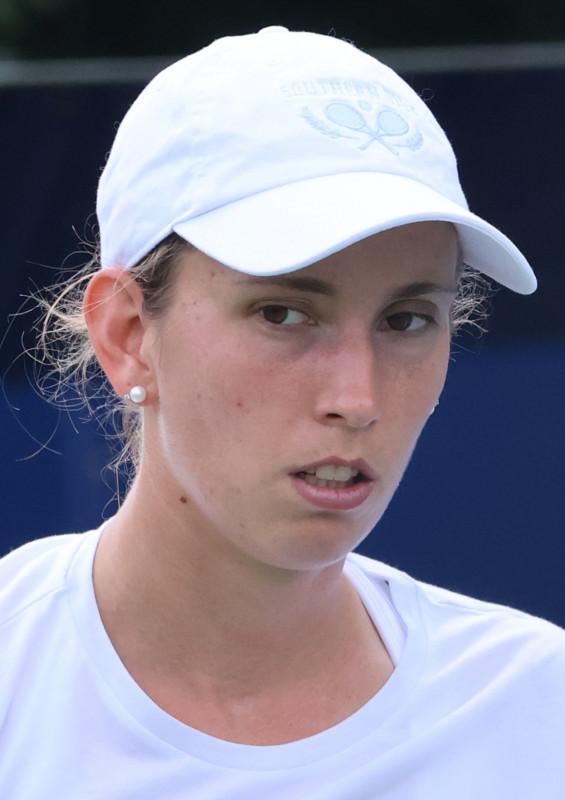
2 hours ago Elise Mertens faces Emma Navarro in WTA Dubai 2026; Predictions and Odds
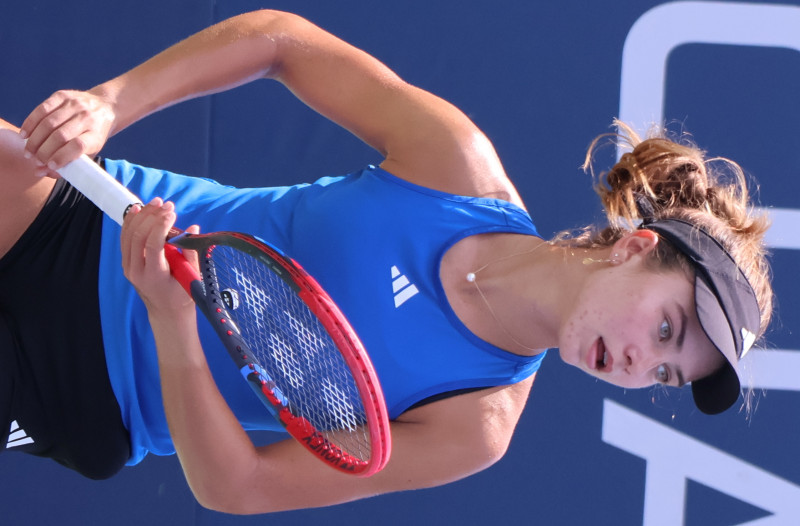
1 day ago Iva Jovic Inspired by Djokovic, Competes in WTA Dubai, Faces Anisimova.
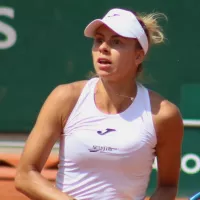
3 hours ago Magda Linette Advances to WTA Dubaj Round 2, Fr?ch Eliminated, Other Final Matches
Popular
Randall Adam Fine is an American politician a Republican who...

Pam Bondi is an American attorney lobbyist and politician currently...

Kid Rock born Robert James Ritchie is an American musician...

Barack Obama the th U S President - was the...
The Winter Olympic Games a major international multi-sport event held...

XXXTentacion born Jahseh Dwayne Ricardo Onfroy was a controversial yet...
